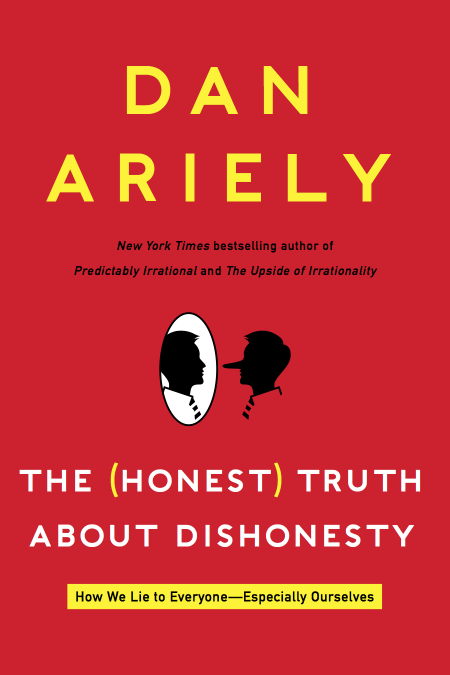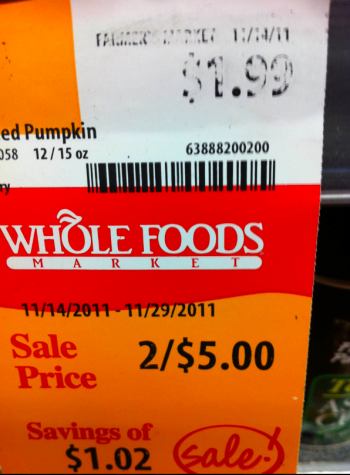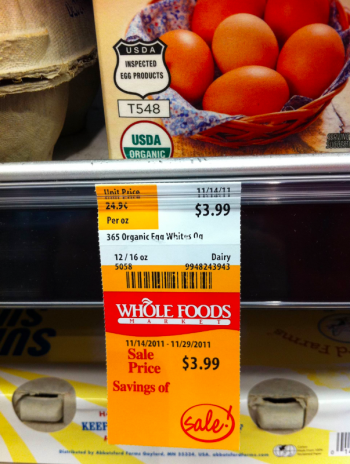Help Peter Ubel
And win an autographed first edition copy of Peter Ubel’s new book—by coming up with creative titles!
I saw the great suggestions you gave to Dan about his new book, and would love to get similar help with my latest book. I’m Peter Ubel, a colleague of Dan’s at Duke University, and my new book is about medical decision-making, specifically the challenge that doctors and patients face trying to talk together about healthcare alternatives in ways that will help them pick the choice that is best for the individual patient.
In the old days, and I’m not talking about that long ago, medical decisions weren’t shared affairs. Doctors made decisions and patients, largely, obeyed. Then in the 1970s, the traditions of medical decision making ran head-on into patients (and lawyers and a new breed of people called ethicists) who demanded that doctors involve patients more actively in their decisions. Now, doctors are taught that the best choice is often not merely a medical decision, but instead hinges on patient values. Under this new paradigm, the physician’s job is to inform patients about their alternatives so that each individual patient can decide which choice fits them best.
Sometimes this new paradigm works great. But too often, it fails miserably. It often starts when physicians like me try to inform patients about their health care conditions. For example, consider a conversation I quote in the book, in which a hematologist describes the risks and benefits of treating leukemia to his patient:
“So if you look at complete cytogenetic response rates in the chronic phase, it’s about 80%, and if you look at the accelerated phase, it’s about 15%. So, the drug doesn’t work in advanced disease very well. If you look at patients who get a complete cytogenetic response as their best response in the Iris trial, their risk of ever progressing in the next 4 years, so about 48 months roughly, is about 8% overall.”
“That’s good,” the patient replied.
“Yeah. So, and this is divided into people who become Philadelphia chromosome positive but appear to be in chronic phase. And half of these are people who go to accelerated phase or blast crisis. If you look at people who had complete cytogenetic response, this is people who had complete cytogenetic remission at any time of the trial, … if you look at people who are at complete cytogenetic remission at 6 months like you are, this is probably less than 5%, so”
“Say that part again,” the patient interjected, “because I didn’t quite follow you.”
You didn’t? Did you forget to go to medical school or something?
Problem 1, then, is that we doctors don’t always know how to explain things to our patients in terms they understand. Problem 2, as readers of this site know all too well, is that even when people DO understand the facts, they are still, . . . how should I put this, . . . predictably irrational. Like Dan, I’ve spent much of my career discovering the irrational forces that influence people’s decisions, and in this book I show these forces at work in the context of medical decision making.
Fortunately, there is a way out of this mess. After telling stories of “medical decisions gone wild,” I lay out ways doctors and patients can work together to make better decisions. I discuss some cool new research that shows what we need to do to achieve shared decision-making between doctors and patients. I show how to move beyond the simple, and wrong, idea that giving patients information will make them empowered, rational decision-makers.
That’s the gist. Any pithy titles come to mind? If any of you come up with an idea that leads me to my eventual title, I will mail you an autographed copy of my book when it comes out next fall.
Thanks.
Peter Ubel
Men, Women, and Pain
If you’ve been to the doctor’s office recently with any kind of complaint, it’s likely you were asked to rate the pain you were experiencing on a scale from 0 to 10 (being the worst pain possible). Well, a group of researchers from the Stanford University School of Medicine recently analyzed the self-reported pain measurements from 11,000 medical records from 2007-2010 and discovered something surprising: women report greater levels of pain than men for the same injuries and ailments.
In The Upside of Irrationality, I briefly discussed a disagreement I had with a professor about the difference in pain tolerance between men and women. My professor, Ina Weiner, maintained the view that women have a higher tolerance in order to cope with childbirth, and she was unimpressed by the story I told about a woman I’d met in the burn unit who confided in me that the pain of her burns was far worse than what she experienced in childbirth. As you might expect, I decided to run a small experiment, and asked the men and women who passed by my cubicle (where I worked as a research assistant) to submerge a hand in hot water and keep it there until the pain became unbearable. Meanwhile, I timed them and recorded their gender.
The next day in class I was excited to describe my experiment and to report that the men who participated kept their hand in the hot water for much longer than the women. Professor Weiner replied that all I’d proven was that men were stupider—after all, who would subject themselves to such pain just for my silly study? Naturally this took the wind out of my sails, and I left the subject alone after that.
But as it turns out, the women analyzed in this study reported more intense pain—an average of about 20% more—for equal-opportunity afflictions ranging from neck and back pain to viral Hepatitis. While the experience of pain and the way people report it is inevitably subjective (for instance, the presence of a concerned family member might lead someone to downplay their pain), it’s likely that the large number of people included in the analysis counterbalances social and individual differences.
And while I would never say “I told you so” to a former teacher, I do hope that this research might make its way somehow to Professor Weiner.
For the original paper, click here.
Announcing My Third Book
PoorQuality: Inequality
Call for Artists to respond to research on inequality
Hosted by Dan Ariely and the Center for Advanced Hindsight
Artists from around the world are invited to attend a discussion on social and economic inequality (from the lab that hosted the “Creative Dishonesty” project), on Wednesday, February 22nd at 7 PM EST. (Artists who do not live within driving distance of Durham, NC will watch the forum streaming live online.)
Interested artists are to RSVP to the curator, Catherine Howard, at creativedishonesty@gmail.com by Tuesday, February 21st at 9 PM.
After the forum, artists interested in creating artwork in response to the research will complete an online application, including a 1-page explanation of the artist’s creative process and 2-3 digital images of past work. To be considered, applications must be submitted by Monday, February 27th at 9 PM.
Artists will be notified if they are selected to participate by February 29th and will receive a $100 stipend to complete their piece. There is no limitation to the style or media of pieces created for “PoorQuality,” but all work must be completed by May 5th.
Artwork created for “PoorQuality” will be on display at the Center for Advanced Hindsight from June 1st to August 31st with a reception on June 22nd. An exhibit catalog, including responses and reflections by the artists and the researchers, will be published. Each artist will receive a copy.
Artists will retain all rights to their piece. Works will be returned to artists after the exhibit by September 15th, 2012. If the piece is purchased, the $100 stipend will be deducted from the purchase price.
Important Deadlines
Feb 22, 7 PM – “PoorQuality: Inequality” forum at the Center for Advanced Hindsight
Feb 27, 9 PM – Deadline to apply for participation
Feb 29, 9 AM – Selected artists will be notified
May 5, 9 PM – Drop-off deadline
Jun 22, 6 PM – 10 PM – Opening reception at the Center for Advanced Hindsight
For more information about the “PoorQuality” project, contact curator Catherine Howard at creativedishonesty@gmail.com
PoorQuality: Inequality
 Call for Artists to respond to research on inequality
Call for Artists to respond to research on inequality
Hosted by Dan Ariely and the Center for Advanced Hindsight
Artists from around the world are invited to attend a discussion on social and economic inequality (from the lab that hosted the “Creative Dishonesty” project), on Wednesday, February 22nd at 7 PM EST. (Artists who do not live within driving distance of Durham, NC will watch the forum streaming live online.)
Interested artists are to RSVP to the curator, Catherine Howard, at creativedishonesty@gmail.com by Tuesday, February 21st at 9 PM EST
After the forum, artists interested in creating artwork in response to the research will complete an online application, including a 1-page explanation of the artist’s creative process and 2-3 digital images of past work. To be considered, applications must be submitted by Monday, February 27th at 9 PM.
Artists will be notified if they are selected to participate by February 29th and will receive a $100 stipend to complete their piece. There is no limitation to the style or media of pieces created for “PoorQuality” but all work must be completed by May 5th.
Artwork created for “PoorQuality” will be on display at the Center for Advanced Hindsight from June 1st to August 31st with a reception on June 22nd. An exhibit catalogue, including responses and reflections by the artists and the researchers, will be published. Each artist will receive a copy.
Artists will retain all rights to their piece. Works will be returned to artists after the exhibit by September 15th, 2012. If the piece is purchased, the $100 stipend will be deducted from the purchase price.
Important Deadlines
Feb 22, 7 PM – “PoorQuality: Inequality” forum at the Center for Advanced Hindsight
Feb 27, 9 PM – Deadline to apply for participation
Feb 29, 9 AM – Selected artists will be notified
May 5, 9 PM – Drop-off deadline
Jun 22, 6 PM – 10 PM – Opening reception at the Center for Advanced Hindsight
For more information about the “PoorQuality” project, contact curator Catherine Howard at creativedishonesty@gmail.com.
Learn more about this research at danariely.com
UPDATE: We have a new website fully devoted to our “Artistically Irrational” art series.
Check it out here: http://artisticallyirrational.ssri.duke.edu/
Special Deals at Whole Foods
Jared Wolfe, one of the students working with me, took the following pictures at Whole Foods a few days ago. They illustrate amazing creativity in defining what the term “a deal” means.
1) Regular price is $1.99 and the Sale price is? Two of the same item for $5 — which according to Whole Foods’ quick calculation is a savings of $1.02. Amazing.
2) Regular price is $3.99 and the Sale price is? $3.99 — thankfully this time they did not add any amount to the savings.
What I am wondering is how many people just look for the orange tags and the Sale signs without even looking at the details. I suspect that this is very common, particularly in a busy and hectic grocery store and particularly when we buy many items that each of them by itself is not very expensive.
 Tweet
Tweet  Like
Like 

